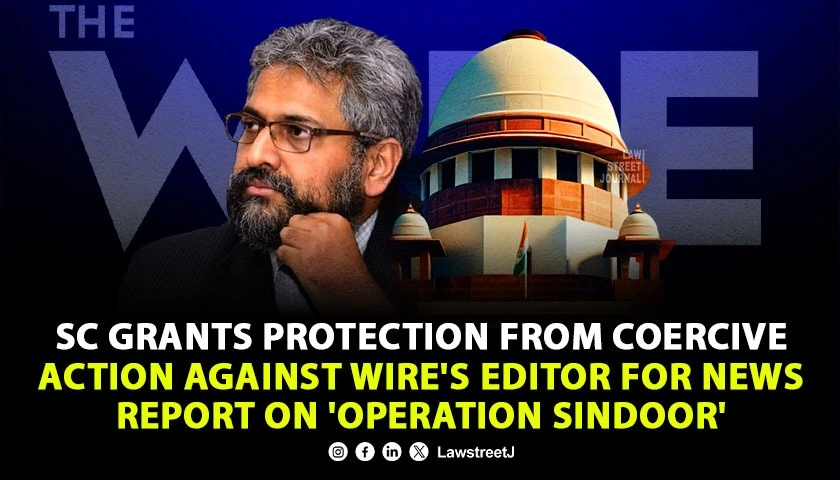NEW DELHI: The Supreme Court on Tuesday granted protection from any coercive action to news portal, the Wire's editor Siddharth Varadarajan in a case lodged by the Assam police for a report related to 'Operation Sindoor'.
A bench of Justices Surya Kant and Joymalya Bagchi passed the interim order, while considering a writ petition filed by the Foundation for Independent Journalism and Varadarajan.
The petitioners challenged validity of Section 152 of the Bhartiya Nyaya Sanhita (BNS), the penal provision of sedition law.
Upon hearing the counsel for the parties, the court issued notice to the Union government and tagged the instant matter, along with another plea, by retired Major General S G Vombatkere, who also sought to declare Section 152 BNS as unconstitutional.
To a plea for interim protection, Solicitor General Tushar Mehta contended the media persons can not be treated as a separate class.
The court, however, said what was being sought about balancing the fundamental right to free speech with protection of public order.
The bench also said when the offence is with respect to articles published by a news outlet, custodial interrogation may not be necessary as these are matters where you don't require custodial interrogation.
Senior advocate Nithya Ramakrishnan, appearing for the petitioners, contended that the new provision was vague and broadly worded and likely to have a chilling effect on the right of media to report.
The bench, however, said any provision in penal law can be misused. The court asked if potentiality to be abused a ground to declare a law as unconstitutional.
The counsel said the provision, penalising "acts endangering the sovereignty of the nation", is inherently vague and vagueness has been recognised as a ground to strike down a provision.
The court asked if acts endangering the sovereignty of the nation have been defined.
"How can it be statically defined that what will be an act of endangering sovereignty as one can argue that political dissent can't endanger sovereignty. Inviting legislature to define endangering sovereignty is a big danger," the bench said.
The counsel said the provision has great potential for misuse and can be used to target the media, even if Mehta asked the court to look at the explanation of the provision.
The petitioners contended the lodging of the FIR was an attempt to muzzle press freedom and abuse of the process of law.
On August 8, the court issued notice to the Union government on the petition, challenging the constitutional validity of Section 152 of the Bharatiya Nyaya Sanhita (successor provision to Section 124-A of IPC), related to sedition.
A plea challenging validity of Section 124-A IPC has been pending consideration before a Constitution bench.
In July 2022, the a three judge bench led by then CJI N V Ramana had virtually stayed the sedition provision of IPC, by directing the Centre and States not to register any further FIR into such an offence.
Disclaimer: This content is produced and published by LawStreet Journal Media for informational purposes only and does not constitute legal advice. The views expressed are independent of any legal practice of the individuals involved.

















